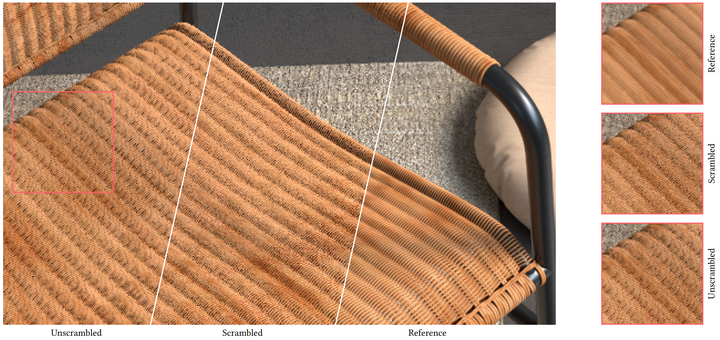
Abstract
We present a novel algorithm for implementing Owen-scrambling,combining the generation and distribution of the scrambling bits in a single self-contained compact process. We employ a context-free grammar to build a binary tree of symbols, and equip each symbol with a scrambling code that affects all descendant nodes. We nominate the grammar of adaptive regular tiles (ART) derived from the repetition-avoiding Thue-Morse word, and we discuss its potential advantages and shortcomings. Our algorithm has many advantages, including random access to samples, fixed time complexity, GPU friendliness, and scalability to any memory budget. Further, it provides two unique features over known methods: it admits optimization, and it is invertable, enabling screen-space scrambling of the high-dimensional Sobol sampler.